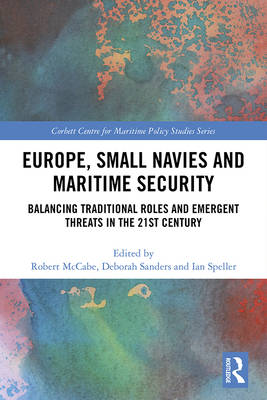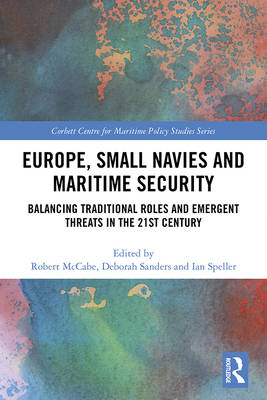
- Afhalen na 1 uur in een winkel met voorraad
- Gratis thuislevering in België vanaf € 30
- Ruim aanbod met 7 miljoen producten
- Afhalen na 1 uur in een winkel met voorraad
- Gratis thuislevering in België vanaf € 30
- Ruim aanbod met 7 miljoen producten
Europe, Small Navies and Maritime Security
Balancing Traditional Roles and Emergent Threats in the 21st Century
Omschrijving
This book seeks to identify and address gaps in our understanding of maritime security and the role of small navies in Europe.
The majority of Europe's navies are small, yet they are often called upon to address a complex array of traditional and non-traditional threats. This volume examines the role of small navies within the European security architecture, by discussing areas of commonality and difference between navies, and arguing that it is not possible to fully understand either maritime strategy or European security without taking into account the actions of small navies. It contains a number of case studies that provide an opportunity to explore how different European states view the current security environment and how naval policy has undergone significant changes within the lifetime of the existing naval assets. In addition, the book examines how maritime security and naval development in Europe might evolve, given that economic forecasts will likely limit the potential procurement of 'larger' naval assets in the future, which means that European states will increasingly have to do more with less in the maritime domain.
This book will be of much interest to students of maritime strategy, naval power, strategic studies, European politics and international relations in general.
Specificaties
Betrokkenen
- Uitgeverij:
Inhoud
- Aantal bladzijden:
- 238
- Taal:
- Engels
- Reeks:
Eigenschappen
- Productcode (EAN):
- 9780367252229
- Verschijningsdatum:
- 1/10/2019
- Uitvoering:
- Hardcover
- Formaat:
- Genaaid
- Afmetingen:
- 157 mm x 236 mm
- Gewicht:
- 498 g

Alleen bij Standaard Boekhandel
Beoordelingen
We publiceren alleen reviews die voldoen aan de voorwaarden voor reviews. Bekijk onze voorwaarden voor reviews.










